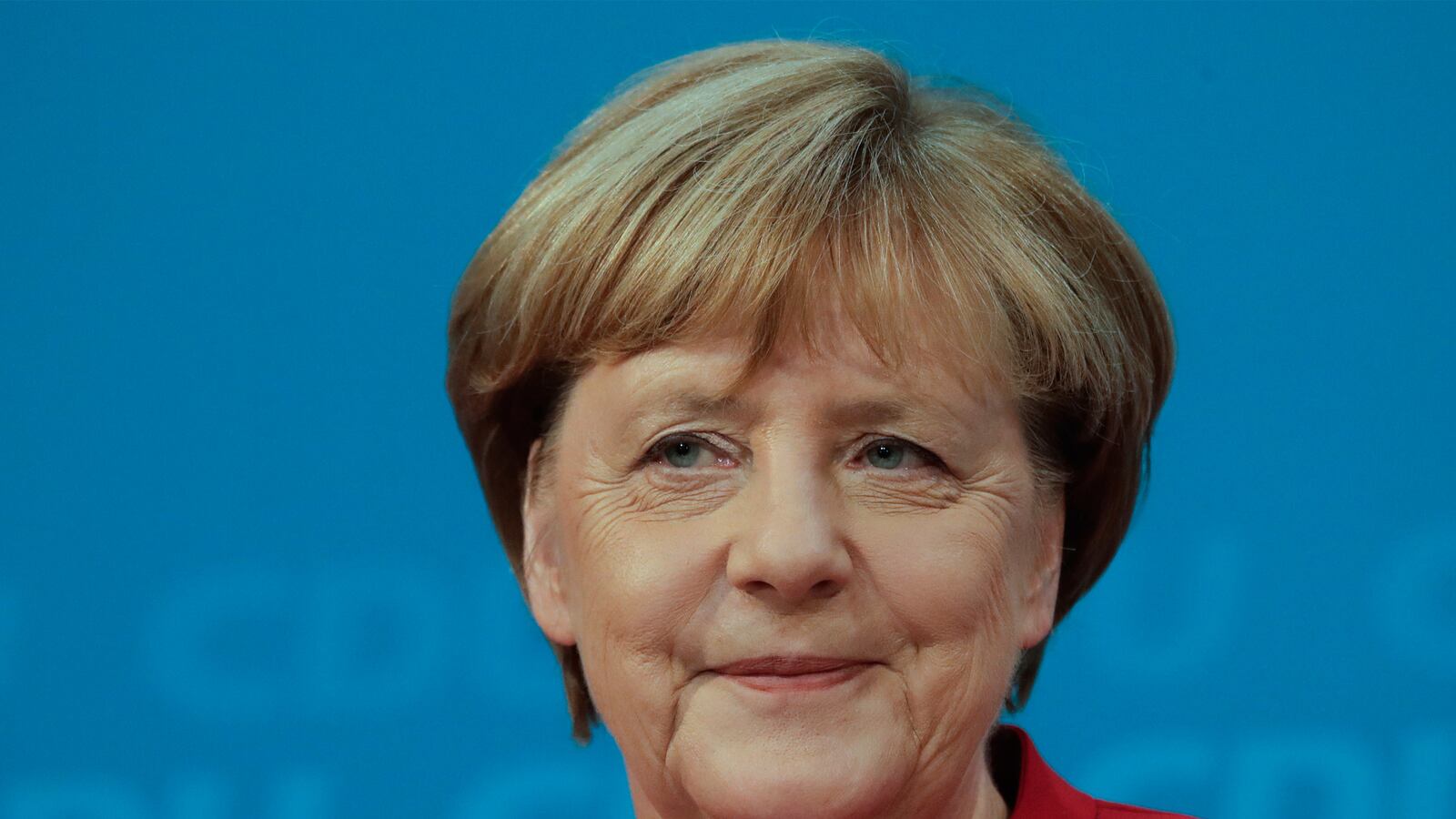BERLIN — Just about the time President Barack Obama touched down in Berlin last week, students at Humboldt University were invited by a niche society called International Youth and Students for Social Equality to attend a talk called “The election of Trump—political causes and teachings.”
Sitting in a stuffy classroom, which looked onto an empty train track (some public transport had been cancelled because Obama was in town), the young attendees buzzed excitedly amongst themselves and at first every seat was filled.
But after 30 minutes, much of the room had cleared out. People had come with a lot of questions: “Can we accept Trump as the U.S. president?”; “Will there be militarization in Germany?” (still a sensitive topic); and, “Was Hillary Clinton really the lesser of two evils?” And they weren’t getting very good answers.
Two editors from the World Socialist Web tried to advocate working class revolution as the antidote to populism. “Obama gave a speech in Athens today where he implied that giving power to Trump is evidence for democracy being intact,” one of them said disdainfully. “It is as if one would say that giving power to Hitler proved that Weimar democracy was intact.”
A young woman who was halfway out the door stopped, turned and commented. “I would be careful about comparing Trump to Hitler, comparing Guantanamo to death camps—you are in danger of relativizing the Holocaust.”
Germans, young Germans particularly, want answers for dealing with a world according to President Donald Trump. But a satisfying explanation is proving hard to find.
***
That evening not one word was spoken about German Chancellor Angela Merkel, even though many English-language media had talked about Obama “passing the baton“ to her as the next defender of the free world. That may not mean much now, but is understood to include the defense of human rights, protecting the environment, reduced trade barriers, the rule of law — what were thought to be settled principles until Trump crowned the ambitions of many extremists in the United States and Europe as well.
Then, on Sunday night, to no one’s great surprise, Merkel announced that she will run for a fourth term as chancellor in the 2017 elections.
Merkel said that she had been told in these uncertain times that people “would have little understanding if I now do not again throw the entirety of my experience, and those talents that have been given to me, into the scales to do my service for Germany.”
So, now that Merkel has made her highly anticipated decision, she is already receiving some criticism about her failure, in between long, sleepy sentences, to offer concrete ideas for the next four years (apart form the topic of pensions and broadband internet in rural areas).
While there is no chance that the far-right Alternative for Germany (AfD) party could take power, if it wins enough seats in the Reichstag, even if no one brings it into a coalition, it can wield power as a strong minority party.
Indeed, AFD leader Frauke Petry seemed pleased with Merkel’s decision. The AFD has put a lot of effort into demonizing the “refugee chancellor.” Now they don’t need to prepare for a new scapegoat.
***
In a joint press conference on Thursday, Obama had praised Merkel as “absolutely extraordinary,“ adding, “If I was a German and allowed to vote, I would support her.“
Obama had arrived on his final trip to Europe “Sorgenfresser“ (translation: worry-muncher), as Der Spiegel lovingly nicknamed him a week after printing a Trump-shaped meteor about to hit planet earth on its cover.
Berliners still remember the time when Obama shrugged off his jacket while speaking to a crowd of 200,000: “We can be informal in front of friends,” he’d said, captivating the Germans in a way they had rarely seen a politician do before.
But while newspapers got excited printing the most elegant pictures of Obama’s time in office, the weather in Berlin was not welcoming, and neither, it seemed, were the people. Only a few lingered in front of the Hotel Adlon, hoping to catch a glimpse of the statesman. The magic had gone.
Which doesn’t mean there isn’t a lot of Obama nostalgia going around. While Germany’s feelings for Obama may have cooled since 2008, lastly because of the NSA surveillance leaks, he is still rated as one of the most popular American presidents.
Now it looks like difficult times lie ahead for German-American relations. On Thursday, Obama said that he was optimistic that Trump would rise to the demands of the presidency but acknowledged that Merkel would have “great burdens to carry“ internationally.
But making dramatic promises that one can’t keep is not Merkel’s style. The expectations being put on her as “the last pillar” of western liberalism, she said on Sunday evening, were “grotesque, even almost absurd.”
***
According to Sudha David-Wilp from the German Marshall Fund in Berlin, while established parties agree that Trump’s election is a “game-changer“ for politics as usual, “it’s possible that upstart and fringe parties may see Trump as a way of gaining leverage for their own policies.“
The question, of course, is whether they will succeed in using that leverage to effect changes, and what sort of response to the right there will be from the left.
Not everyone in Germany is worried about the Trump-meteor. “My opinion is very different,“ one young woman says cheerfully, stubbing out her cigarette on a metal barrier. “Of course I don’t like Trump, but maybe his presidency will be part of a positive development, where Europe will be able to distance itself from America, from capitalism. We can take it back to the roots.”
“Merkel and Obama represent the enforcement of commercial interests,“ Left party politician Sevim Dagdelen tells The Daily Beast, dismissing their joint appeal for the trans-Atlantic free trade agreement and climate protection, which was published in Wirtschaftswoche this week.
Some 70,000 people demonstrated against that transatlantic agreement in Berlin in September. According to Dagdelen, “Obama stands for social division and social inequality, that’s why he gets on so well with the conservative Angela Merkel.”
When Merkel was asked on Thursday whether saying goodbye to Obama is hard, she admitted it was. “But we are all politicians,” she said. “And democracy lives from change.”
Merkel clearly hesitated before making this decision to run again.
In 1998 she had told the photographer Herlinde Koelbl, “I don’t want to be a half dead wreck” once the time comes to get out of politics. But when asked about this comment on Sunday evening, Merkel smiled sweetly. “Well, I looked at myself in the mirror and I don’t think I am that yet.”






